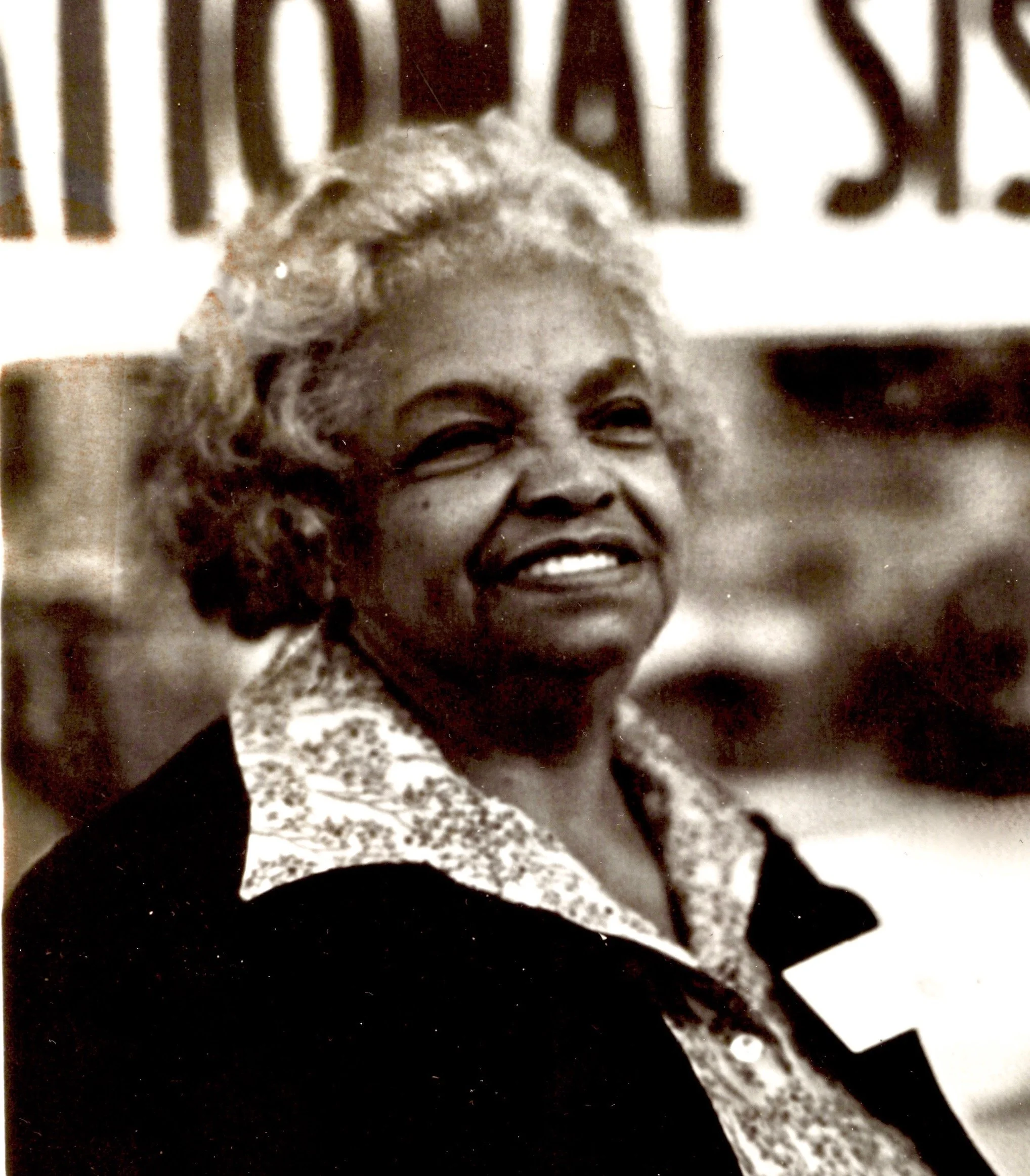Sylvia Woods
Sylvia Woods was ten years old when performed her first protest. To get to school every morning, she and her siblings had to walk through a beautiful park. They were not allowed to stop or play in this park, though. She came to understand the reason why: she was Black and it was a whites-only park. She stopped singing the Star Spangled Banner each morning and was eventually called to see the principal. She explained to him that this was "Because it says 'The land of the free and the home of the brave' and this is not the land of the free."
Woods was a pioneer in the African-American liberation and labor movements. She grew up in New Orleans in the early 1910’s. Her father, a Garveyite working as a roofer, taught her the importance of belonging to a union. She married young, at 16, and moved to Chicago during the Great Migration. She and her husband settled on the West Side of Chicago where she would live for the rest of her life.
She worked in a laundry in Chicago and spearheaded the organizing for the Laundry Workers Union. She worked at Bendix Aviation during World War II and became engaged in the United Auto Workers local there. She was an avid and effective union recruiter, which moved her through several positions at the union over the years. Later, she worked at Cook County Hospital as a Licensed Practical Nurse.
As her activism evolved, so did her perspective. Sylvia was rather indifferent to the struggles of poor whites at first. Through her organizing, however, she realized that racism is used as a tool to divide the working class, and came to believe that Black and white workers must unite to fight the bosses. This ideology guided much of her work organizing unions.
In 1946, Woods ran for Illinois State Representative as an Independent, the first Black woman in Chicago to do so, and received 25,000 votes.
In the 1950s, Woods protested the murder of Emmett Till; defended the right of Paul Robeson to practice his art; and fought against the Smith Act and McCarthy era anti-communism. Later, she helped found the Black Panther Party free health clinic and breakfast program.
Sylvia Woods was an outspoken and eloquent foe of racism and police brutality. She joined the National Negro Congress and was a public spokesperson for the Communist Party in Illinois. In 1970, a she took up the struggle to free Angela Davis, the California professor framed on a murder charge. Woods rallied thousands to the cause of the Davis’ freedom, and later helped to found the National Alliance Against Racist and Political Repression.
Click here to watch Union Maids, featuring appearances by Woods.
“I learned that you can’t go any place unless you go together. This one [white] woman who was fightin’ for this Black man to get in his tool room — I had never heard and never believed that such a thing could happen.
"And I found out that people workin’ together and fightin’ together for the same things is the only way that you’re gonna get anything.”
